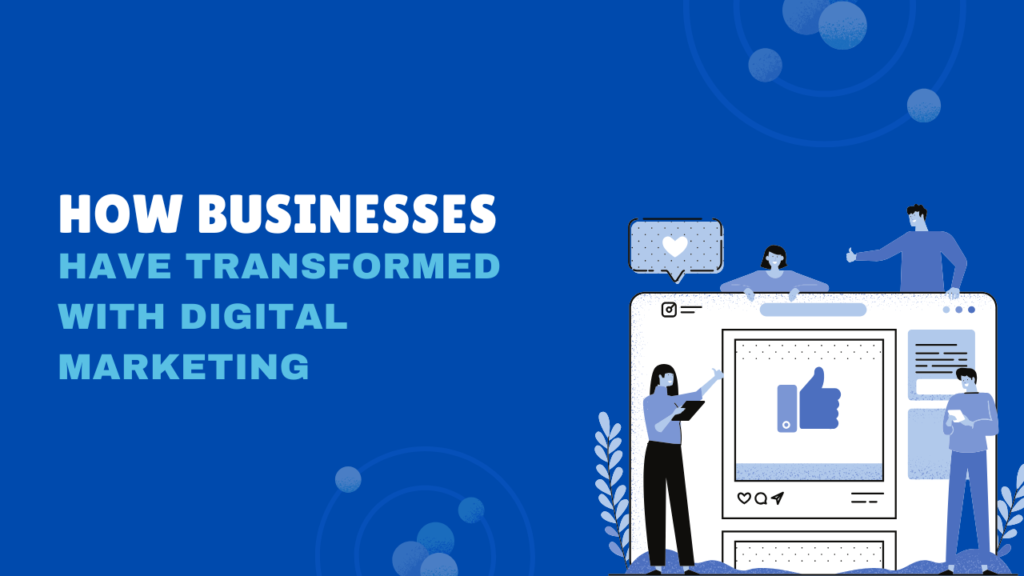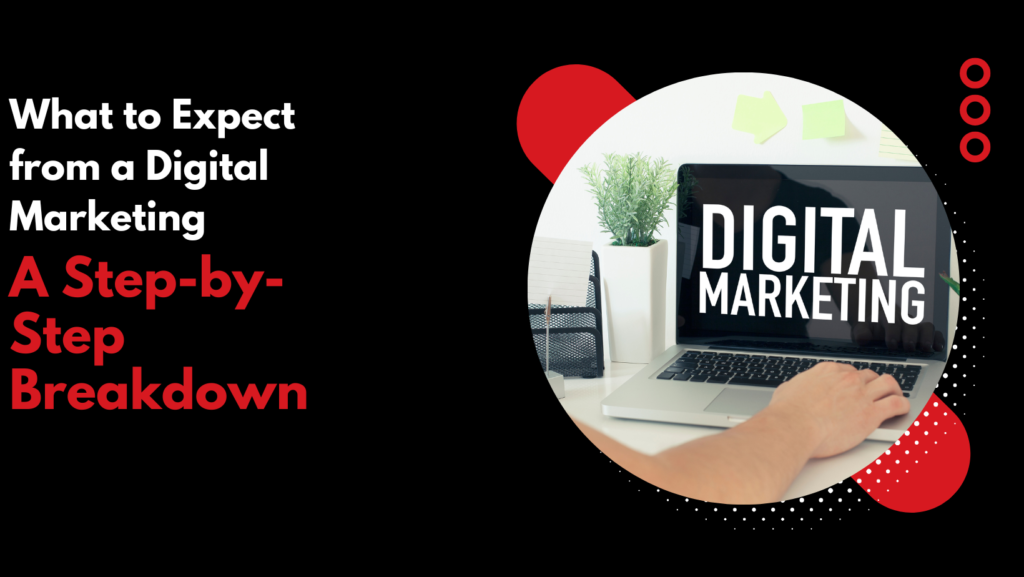Introduction
In the modern business landscape, digital marketing has become an essential strategy for growth, customer engagement, and brand awareness. Companies across industries have leveraged digital marketing to revolutionize their operations, increase revenue, and build stronger relationships with their audiences. This blog explores real-world case studies of businesses that have successfully transformed using digital marketing.
Case Study 1: Nike – Personalized Customer Engagement through Digital Marketing
Nike, a global leader in sportswear, has been at the forefront of digital marketing innovation. The brand’s success is attributed to its data-driven and customer-centric approach.
Strategies Used:
- Social Media Marketing: Nike effectively uses platforms like Instagram, Twitter, and TikTok to engage with customers and showcase new products.
- Influencer Marketing: Collaborations with athletes and influencers boost brand credibility and reach.
- Nike Training Club & Nike Run Club Apps: These apps provide personalized workout plans, creating a sense of community among fitness enthusiasts.
- Email and Content Marketing: Nike personalizes emails with product recommendations based on users’ interests and browsing history.
Results:
- Increased customer loyalty and retention.
- Higher engagement rates across social media platforms.
- Improved sales through targeted campaigns and personalized offers.
Case Study 2: Domino’s – Reinventing Customer Experience with Digital Transformation
Domino’s, a global pizza brand, transformed its business by integrating digital marketing with technology-driven innovations.
Strategies Used:
- AI and Chatbot Integration: Customers can order via voice assistants like Alexa and Google Assistant.
- Mobile App and Website Optimization: User-friendly interfaces and seamless ordering experiences have enhanced convenience.
- Social Media Campaigns: Interactive and engaging content, including user-generated posts, contests, and meme marketing.
- Email and SMS Marketing: Personalized deals and offers based on customer preferences.
Results:
- Online sales surpassed in-store sales, with over 70% of orders coming through digital platforms.
- Enhanced brand engagement and customer satisfaction.
- Faster order processing and increased revenue.
Case Study 3: Airbnb – Leveraging Content Marketing for Global Success
Airbnb disrupted the hospitality industry with its innovative approach to digital marketing.
Strategies Used:
- Content Marketing & Storytelling: Airbnb shares host and traveler stories to inspire audiences.
- SEO and Localized Marketing: Targeted content optimized for different regions to attract diverse customer bases.
- Social Media Advertising: Paid campaigns to promote listings and experiences.
- Referral Programs: Offering discounts for referrals encouraged users to invite friends.
Results:
- Rapid global expansion and increased user adoption.
- Enhanced trust and brand credibility through user-generated content.
- Higher engagement and conversion rates through personalized marketing.
Case Study 4: Zomato – Using Data Analytics to Drive Growth
Zomato, a food delivery platform, leveraged digital marketing strategies to dominate the industry.
Strategies Used:
- Data-Driven Personalization: AI-based recommendations based on users’ previous orders.
- Social Media and Meme Marketing: Engaging and humorous content helped in brand recall.
- Push Notifications and Email Marketing: Timely offers based on peak dining hours.
- Influencer Collaborations: Partnering with food bloggers to increase reach.
Results:
- Substantial growth in app downloads and active users.
- Increased customer retention through personalized marketing.
- Enhanced engagement with the brand, leading to a competitive advantage.
Case Study 5: Tesla – Disrupting the Automotive Industry through Digital-First Strategies
Tesla, a leader in electric vehicles, has primarily relied on digital marketing rather than traditional advertising.
Strategies Used:
- Social Media & CEO Branding: Elon Musk’s Twitter presence serves as an organic marketing tool.
- Direct-to-Consumer Model: Selling cars online without intermediaries.
- Content Marketing & Video Marketing: Educational content on sustainability and EV technology.
- Referral Programs: Rewarding existing customers for new referrals.
Results:
- Increased brand loyalty and advocacy.
- Viral marketing success through strategic tweets and announcements.
- Higher engagement and direct sales via digital channels.
Conclusion
Digital marketing has transformed businesses across industries, enabling them to engage with customers more effectively, drive sales, and establish a strong online presence. Whether it’s a multinational corporation like Nike or an innovative disruptor like Tesla, the right digital marketing strategies can lead to exponential growth and brand success.
For businesses looking to scale, investing in digital marketing is no longer an option—it’s a necessity.

